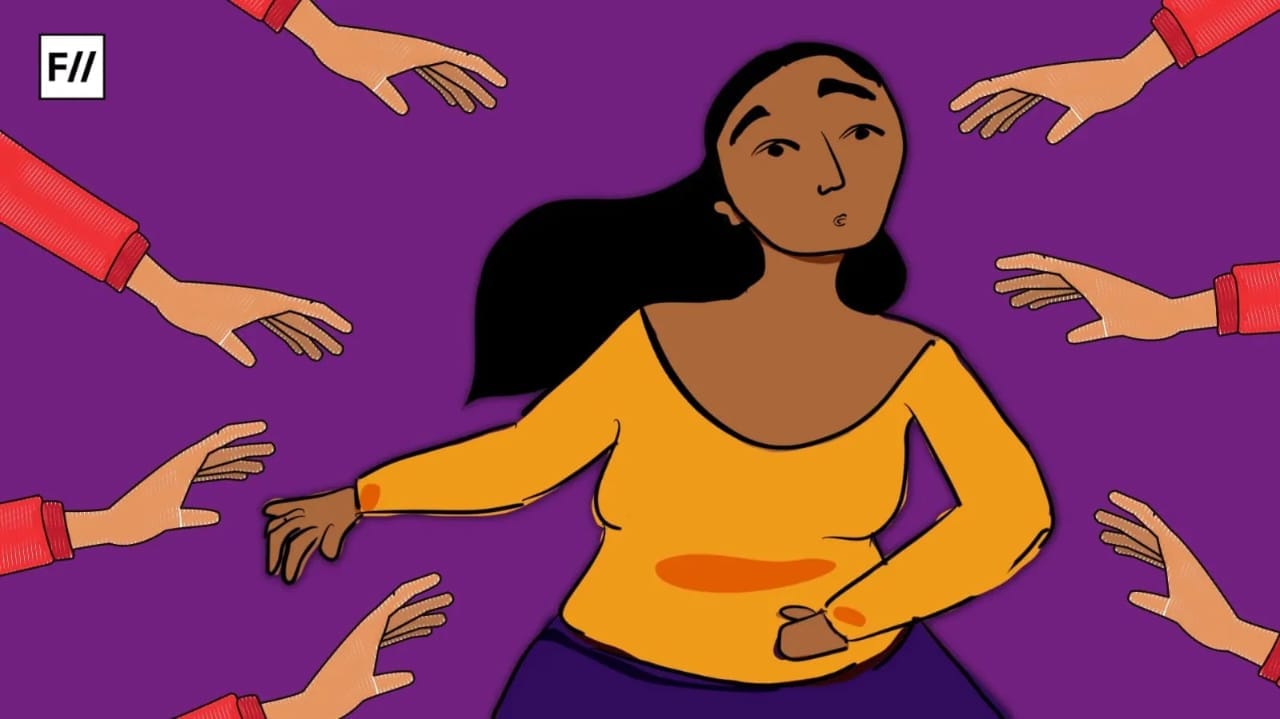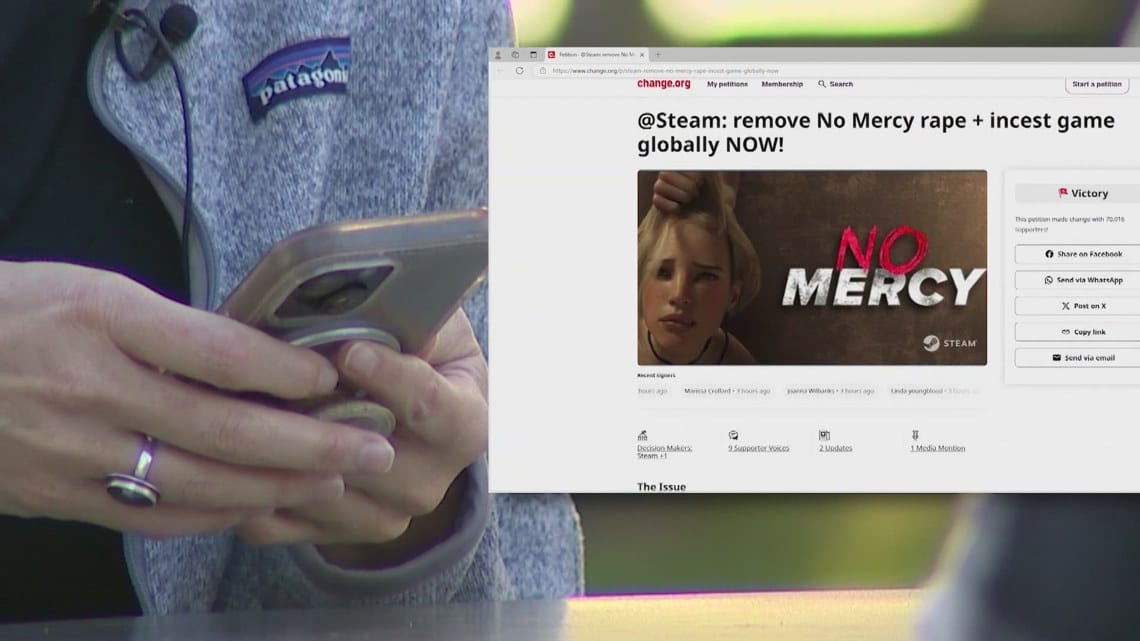The Aziz Ansari story by Babe is a clear indication of how ‘good men’ perceive sex: as some kind of a prize they deserve, whether immediately or eventually, for being their definition of ‘nice’ to women.
For the past few days, the internet has been flooded with triggering content. It has generated a feeling of hopelessness in me, making me angry and sad at the way people have been boasting about their entitled opinions on the Aziz Ansari case. Had it not been for the constant re-affirmations by some wonderful people out there, I would have easily slipped into another stint of depression while trying to overcome the insensitivity that this world is capable of.
It was a ray of hope to read how women were disturbed, yet found the courage to share their feelings with each other, to read that someone knew how painful this constant bombardment of information could be, to read how women are taking extra effort to make our timelines happier – by sharing and teaching the world what enthusiastic consent is. The constant reminders that if we stick to our gut and call out the perpetrators, there are going to be hundred other women who will stand with you – all over the world.
So I want to begin by thanking Grace for being courageous, for believing in her gut, for reassuring that so many of our stories are valid.
I share the pain, I share the anger, and I hear all you women aching to write your rage out.
While I do not want to delve into the disturbing experience that Grace had, I do want to talk about what followed after her allegations against Aziz Ansari. The case, over the past few days, has seen support from both sides – on one side, many hold Ansari accountable for his actions, and on the other, many call out Grace for misreading her unpleasant experience of a bad date as sexual assault.
For those who want to read, Grace’s story first came here, where she talks about her date with Ansari as the worst night of her life, and then goes on to justify her claim by narrating her experience. (The article does not use her real name in order to protect her identity).
Feminism has taught us a lot, but are we listening?
It was disturbing, mostly because it was relatable and tough to read. But bless the feminists and the internet for coming to our rescue! As this amazing article aptly points out, Ansari was warned before. And of course, he was!
Susan Brownmiller, the American feminist, author, journalist and activist, wrote years ago in Against Our Will: Men, Women, and Rape where she mentions –
“All Rape is an exercise in power, but some rapists have an edge that is more than physical. They operate within an institutionalized setting that works to their advantage and in which a victim has little chance to redress her grievance. Rape in slavery and rape in wartime are two such examples. But rapists may also operate within an emotional setting or within a dependent relationship that provides a hierarchical, authoritarian structure of its own that weakens a victim’s resistance, distorts her perspective and confounds her will.”
So what is Ansari’s behaviour if not a conscious process of intimidation that ensured he remained in a state of control and instilled fear in the mind and body of Grace who wanted to but could not leave? Feminists over the years have ensured that we understand what consent means and we recognize the nuances and complexities that sex involves. Have men cared enough to consider and recognize their efforts? Where does this insensitive response to hold Grace culpable for her feelings come from?
Women’s pleasure does not fit the gamut of male fantasy.
Feminists also, in the many debates on sex positivity, have warned us against the dangers of making sex fashionable, and our responses to sex, as females, mandatorily enthusiastic. Incorporating a constructive critique of sex positivity is important because it reinforces how gender and power operate in intimate relationships. As this article rightly points out, “Sex-positivity isn’t about exclaiming “YEAH!” to every conversation around sex any more than feminism is about exclaiming “YEAH!” to any conversation about women.” There is more to it.
We need to understand that every experience of sex is not an act of liberation. When women speak up about how their past experiences have made them feel violated and left them utterly confused and uncomfortable, we need to find ways to think through these complexities. Sometimes our bodies participate, but we feel absent – often violated and abused for not being able to recognize our feelings and failing to find the ability to say NO.
A lot of this is sustained by cis-men’s inability to look at women as full human beings. Because the kind of sex they value is where women do not matter. Women’s sexual pleasures do not even count. It’s not even a part of men’s plan to please or satisfy her. Women’s pleasure does not fit the gamut of male fantasy.
But what makes the actions of these ‘good men’ not worth talking about in the larger spectrum of rape culture? A lot of men and some women sensed a great deal of discomfort on the strong allegations against Ansari. One of the major reasons for this discomfort is the fact that Aziz’s behaviour is not at all uncommon. In fact, to many men, it should reek of nostalgia. The universality and normalcy of it put the problem beyond legal recognition.
As someone on Twitter rightly pointed out, “The Aziz Ansari story is a good litmus test for who sees sexual misconduct as a strictly legal question and who is concerned about improving the overall culture surrounding sex and dating. It’s also many times more relevant to the average person’s experience than, say, Weinstein.” This is what makes it dangerous to relegate Grace’s experience as ‘just bad sex’ because it is precisely this common ‘bad experience’ that needs to be critiqued and called out.
The thing about this ‘normal’ behaviour by cis-men is that, as a non-cis-male, it pushes you to the boundaries of disbelief, to the extent that it makes you doubt yourself and your actions after you feel violated in your body. His ‘decent behaviour’ is evident of the fact that nothing ‘severe’ happened. He did not ‘physically hurt’. He did not ‘abuse’. He did not ‘kill’.
So what did Aziz Ansari exactly do?
Aziz Ansari did something that is relatable and commonplace. But it is hard to recognize for what it actually stands. He did what one would do mindlessly thinking this is how it is – this is how it works. He contributed to rape culture in our patriarchal society. He provided ample validation to the stereotypical male behaviour that allows and socializes cis-men to persist beyond reason, control beyond measure, and manipulate beyond the possibility of any guilt.
As Meghan Murphy rightly puts it, “The Aziz Ansari stuff is perfect demonstration of how rape culture works and how men are socialized to feel entitled to sex. No, there was no rape, but this thing where men pester women for sex and don’t let up, even when it’s clear she isn’t into it, is rape culture.”
What allows men to disregard what a woman is feeling or trying to convey to her ability to put her thoughts into action or her complete inability to act? Women, for years, have painstakingly asserted that what this culture advances as ‘everyday’ and ‘normal’ is not something that should be left outside the purview of critical observation. If women are feeling violated in their bodies, it’s not right. It’s not working. It needs to stop.
So much of our socialization also conditions us to accept how men behave and what men desire from sexual experiences. Getting consent at every stage of the sexual act is considered unsexy. Boring. Not important. Does it ruin your mood? Does it take away the thrill? If the answer to all of this is yes, then you are contributing to rape culture.
Being spontaneous does not require you to be a complete asshole and disregard your partner’s feelings. Learn to listen to women when they tell you how sexist jokes and comments, when gone unchecked, are not okay.
Also Read: What Happened When Ayesha Gulalai Accused Imran Khan Of Sexual Harassment
Listen to your non-cis-male friends’ experiences of why they lacked the capacity to protest and leave when they were not enjoying having sex with somebody. Provide them validity. Listen. Do not tell them what they could have done instead. They know. And they are trying to tell exactly what stopped them from doing it.
We live in a world where popular culture and modern ways of dating have completely changed how we look at agency, consent and sex. We have a knee-jerk predisposition to point out how sexual standards are not the same anymore.
But there is a difference between spontaneity, seduction, and coercion, manipulation. It’s a prominent one and we cannot afford to ignore it. We forget that sometimes what breaks us the most is the subtlest forms of coercive behaviours that are hard to name and place in our legal jargon. It sucks because it makes you believe that it is your fault – and you know in your gut it isn’t.
If sex is a complicated process, our culture has made it even more complex. But we are so hell-bent on holding women accountable for their weakness that we just don’t ask men enough to take equal responsibility for understanding these complications. Why is the burden of ‘leaving’ on women more important than that on men of ‘recognizing when to stop’?
Why are we grading women’s experiences of harassment and assault?
Responses to Aziz Ansari’s story further reminded me of another very painful account. When Mahmood Farooqui was accused of rape, India’s prominent feminist Flavia Agnes triggered us by speaking in a way that belittled, reduced, and delegitimized the experiences of people who live in rape culture and face forms of sexual assault every day, as rightly put by Shyamolie Singh.
The problem is that we do not pay heed to the number of ways in which we gaslight the survivor is by calling their experiences trivial, by comparing their experiences with someone else’s ‘worse’ experiences, by telling them to ‘get over it’. We need to stop doing it. Women do not need to hear this garbage.
It doesn’t make sense to recognize women might have felt ‘wronged’ and then infuse a ‘but…’ to tell them they were stupid to not walk out or they are making a big deal out of it. No one has the right to tell a survivor how they ought to feel. It’s not the same for everybody and we need not be their spokespersons or allies on this matter if we are not going to believe every single word of what they are saying.
We cannot grade Grace’s trauma. Nor can we call her out for giving out explicit details of her date night with Ansari. Those who are doing it need to understand that allegations always, ALWAYS come with the lurking possibility of victim blaming – a lot of times because those telling their stories are constantly told there isn’t enough evidence in their narrative.
Derailing the #MeToo campaign or making it genuinely inclusive?
People have been talking about how depicting Aziz Ansari as the perpetrator has derailed the #MeToo campaign. A lot of them argue that the allegation that it is sexual assault did a disservice to an already existing movement that was due for long.
But is this really what the Aziz Ansari story is doing to the #MeToo campaign? Or do we need to sit back and rethink our responses instead of being so intellectually lazy? What we need to remember when we talk about #MeToo is that men, almost all of them, think this behaviour is normal – and thus unproblematic.
Men are hardened to believe that they have to ‘win her’ as if she is a prize – an object. What #MeToo signifies is exactly this – how women constantly have to explain and justify their experience of being at the receiving end of this entitled male behaviour.
Why is the burden of ‘leaving’ on women more important than that on men of ‘recognizing when to stop’?
The Aziz Ansari story actually gives us an opportunity to understand the experiences of women in a more complex way than ever before. Why does Grace’s experience garner a lot of #MeToo and ‘Yes I relate’ but do not agree with her opinion that it is sexual assault?
Why does the universality of the experience not make it enough for them to stand up and call out the entitlement that men pride on? If we want the #MeToo movement to actually last long, then we need to renegotiate our accepted discourses of sexual assault, sexual harassment and violence.
‘Good Men’
We need to understand the difference between coercion and consent. Coercion is not consent. Most men and a lot of women who have been in Ansari’s place find nothing wrong in what he did – but we cannot afford to forget and ignore the fact that persistence is a form of manipulation. We need to re-analyze how we look at consent and how we proceed in sexual encounters.
Men have idolized the image of women playing hard to get so much that there is no way they can fail – they have to get her, and if being persistent is what it takes, then be it! After all, rejection is hard to swallow when men as boys have grown up listening to things like ‘be a man, don’t give up’, ‘try harder’, ‘be strong’, and ‘you lost the race to a girl? Don’t be a pussy’.
Now you see what is wrong in being the real replica of the dangerous cis-male stereotype? It dehumanizes women. It sustains patriarchy. It keeps men in power.
The many ‘good men’ we know do not want to think about women’s safety when they are thinking about sex. The only time men think of women’s safety is when they know they can establish their ‘savior’ complex in front of the world – because they benefit from it. All the ‘good men’ I know would call this behaviour ‘normal’ without a second thought to spare.
We keep such low expectations from men that we pass every man who is the stereotypical version of the cis-male. But the danger in doing so lies in the fact that as a corollary, we put the burden on the victim/survivor to find fault in their behaviour. When our benchmark for ethical male behaviour is so low, then women must be at fault for expecting anything better, isn’t it?
It becomes worse when it’s a public figure like Ansari – the cool and vocal ‘feminist’, who at first makes it hard to even believe that he could cross the line. And that’s the real crisis. So many of these ‘good men’ know exactly where to draw a line – they know where to stop. They know what can put them in trouble.
But they also know how to manipulate those less powerful than them. Of course, they don’t ‘brutally rape’ – because they are smart and they know how to put pressure on women who have been conditioned to be polite, nice, often confused and miserable, not to forget docile and always in need of rescue/help.
We fail to understand that men actually do not even have to be the scary image of ‘angry violent dangerous rapist’ to coerce women into doing what they do not want to. They only have to be their versions of nice men who want just want some sex. They have to be the Aziz Ansaris of our times; men who can get away with their shitty behaviour with nominal or no risk to their award-winning careers.
It’s bad enough that survivors have to live with the experience without talking about it, let alone hear people bash them for feeling what they did or not doing what they could / should have. The system that we operate in allows cis-men to acquire powerful positions – such that they can not only get away but also get rewarded (awarded, in this case). So even if we assume that Aziz Ansari was actually ‘clueless’ about how Grace felt, we would be fools to ignore where the real problem lies – in Ansari not even realizing he has violated Grace.
Also Read: Why Mansplaining About Sexual Harassment Must Stop
Featured Image Credit: MensXP
About the author(s)
Nupur is a graduate in Women’s Studies. Interests include research, academia, gender, sexuality and politics.




